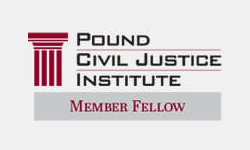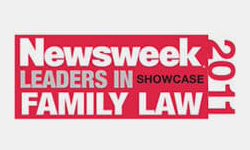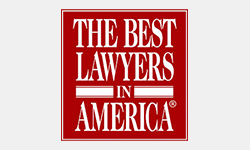Judge Robert Krause rules in a sexual-abuse lawsuit that the Roman Catholic Diocese of Providence’s claim that the information was privileged was wrong.
BY SCOTT MACKAY
Journal Staff Writer
PROVIDENCE — A Rhode Island Superior Court judge yesterday punctured the secrecy surrounding personnel decisions by the Roman Catholic Church, ruling that top officials of the Diocese of Providence must open their records of what they knew and what they did about priests who were accused of sexual abuse.
Judge Robert D. Krause said the diocese’s claim that such information was protected under the “clergy-penitent” privilege was wrong. Krause ordered the diocese to turn over such documents as internal church investigations, complaints against abusers from other priests and parishioners, and medical reports from psychiatric programs in which pedophile priests were enrolled.
The ruling came in a lawsuit filed against the diocese by more than 30 victims of abuse from Roman Catholic priests. Named in the lawsuit are Bishop Robert Mulvee, former Bishop Louis E. Gelineau, and former Auxiliary Bishop Kenneth Angell, who is now bishop of the Roman Catholic Diocese of Burlington, in Vermont.
“I expect there will be a substantial amount of information that we will get,” said Timothy J. Conlon, lawyer for 32 of the 38 victims who have filed suit and are seeking monetary damages from the diocese.
The suit alleges that a dozen priests — at least four of whom are dead — and one nun abused the victims.
Conlon said one key trove of information he wants is what he described as “about 8 boxes” filled with evidence gathered by Robert McCarthy, a retired Massachusetts police officer, hired by Bishop Gelineau in 1993 to investigate sexual-abuse claims.
Lawyers for the diocese have tried to block release of the information, citing such state laws as a provision that protects the sanctity of confessions and other “confidential communications.”
Church lawyers could not be reached for comment last night, but Krause made clear in his opinion that he did not buy the diocese’s argument.
“Such communications do not warrant secrecy at all,” he said.
“It is simply wrong to conclude that information and documentation that plaintiffs seek are privileged and should somehow be insulated from disclosure, when that information relates in any way to a pedophile priest who has engaged in criminal sexual assaults upon children,” Krause wrote.
“By no elastic stretch of the most fertile imagination can one rationally conclude that such information or any such communication deserves or merits confidentiality as expressions of religious freedom or a privilege that the United States Supreme Court has restricted to ‘the imperative need for confidence and trust.’ “
In 1990, the testimony of Bishop Gelineau and Bishop Angell was made public in a sexual-abuse lawsuit involving the late Father William C. O’Connell, who had been pastor at St. Mary Church in Bristol. Father O’Connell was convicted in 1986 of sexually abusing a Narragansett boy. After serving a one-year sentence in work release, Father O’Connell moved to New Jersey, where in 1994 he was arrested and convicted of molesting boys. He died in prison.
In pretrial testimony, Bishop Gelineau acknowledged that he never confronted Father O’Connell about allegations of suspicious behavior with young boys that had been made by two assistant pastors at St. Mary. And Bishop Angell said he did not believe the allegations that Father O’Connell behaved suspiciously with young boys because for 28 years he had known Father O’Connell as a “good person.”
After the testimony became public, the diocese paid a $1-million settlement to the boy’s family.
Last month, the diocese refused to turn over more than 400 pages of requested personnel, medical and reassignment records for the Rev. James E. Silva, a convicted sex-abuser.
“To the extent that the defendants complain that the propounded interrogatories and requests for production are somehow too vague or unduly burdensome, these rejections are likewise rejected,” Krause said.
Lawyers for the victims have said that the diocese has not been cooperative in turning over necessary documents. Krause ordered the diocese to supply church documents “as requested” by plaintiffs’ lawyers.
Krause’s order is distinguished from an earlier decision by Superior Court Judge Richard J. Israel, who stepped down from the case last fall.
Krause said he deviated from the earlier ruling because circumstances have changed since Israel’s decision in January 2000. And he also pointed to a “commitment of transparency and openness” declared at the U.S. Conference of Catholic Bishops last month in Dallas.
The diocese also had claimed the evidence requested by the alleged victims was not relevant to the case.
Krause disagreed, saying “an integral part of a plaintiff’s burden of proof in these cases is to demonstrate a hierarchical defendant’s knowledge about an offending cleric.”
The victims’ request, Krause said, was “properly targeted” because it may “lead to admissible evidence as to whether an alleged supervisor, such as defendant Gelineau, knew that ensuing sexual misconduct by a priest, would, in all likelihood, occur.”
Krause ruled that admissible evidence may be direct or circumstantial, written or oral. He also ruled that in cases where a potential clergy-penitent privilege overlaps with secular functions, “the balance must tip in favor of disclosure, not secrecy.”










